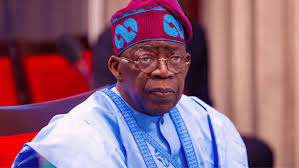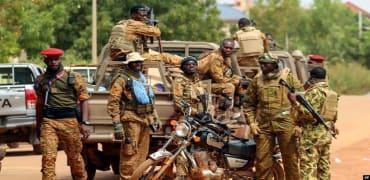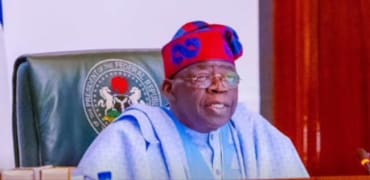Tinubu Not Settling Tribal Scores
Tinubu Not Settling Tribal Scores.
Razaq Ivori
President Bola Tinubu was brought in on a Muslim-Muslim ticket. His Excellency has never forgotten that. Nigerians, by choice of ballot, impressed a profound instruction on him to do everything humanly possible to get the economy back on track. Like a man obeying a divine mantra, President Tinubu tirelessly grinds through the process of economic recovery, deftly flying past religious sentiments, choosing only the best from every ethnic background and putting aside, for once, the dogmatic and archaic system of solely appointing persons based on their religion and tribe for the sake of appeasement, while risking economic collapse.
Since the dawn of our democracy, we have been fulfilling all ethnic requirements and inclusion, but where has that landed us? The lingering persistent problems remain unsolved, and the question remains: why hasn't the inclusion of various ethnic groups - Igbo, Yoruba, Hausa, Fulani, Ibibio, Igala, Tiv, Efik, and others - solved the never-ending underdevelopment crisis that has plagued us for over 20+ democratic years?
It is completely malicious to say that President Tinubu appointed only his tribal group for appointments. Yet, as soon as one puts down the black and white report on all political appointees and these critics see the error in their accusations, they hide behind the falsification that the 'key' positions are for Yorubas only.
Please, what are key positions, and which are the irrelevant positions? The position of Mallam Nuhu Ribadu as National Security Adviser to the President is irrelevant, but that of the Chief of Army Staff isn't? The position of Chief Heineken and Chief Eperikpe as ministers of Gas and petroleum sectors are irrelevant, but the position of Mr. Wale Edu as Finance Minister is key?
Should we begin a belittling lecture on how every single ministry affects the sustainability of the other? Should we waste time with this mediocre discussion or join hands to work hard with President Tinubu, whom everyone knows doesn't have one iota of bigotry in his spirit?
Appointing 2 ministers of Defence from the core North Bello Mattawale and Alhaji Badaru is not bigotry but one Chief of Army Staff that is Yoruba is the actual problem. Atiku bagudu of kebbi state as Budget and planning minister is not in a key position but the Minsiter for Solid Minerals Development Dele Alake is the one holding a key position. Just so you know yorubas hold 8 positions as Minster compared to 21 ministers from the North. Can we all now get along?
Nigeria's diversity is both its strength and weakness. With over 250 ethnic groups, the country's political landscape is inherently complex. The federal character principle, aimed at promoting inclusivity, often falls short in practice. The smartest way to satisfy all 250 ethnic groups is to give them water, light, housing, good roads, and affordable food, rather than sifting through a list of men's ethnic profiles (to appease a few)and in the end, you can't pick everyone. How do you fit in 250 tribes into about 50 spaces for ministers? Or beter still some tribes should be given the "irrelevant positions" Should we continue to feel that once we have included the three major tribes, everyone is satisfied? Nigeria has never had an Igala President do we then say igala people are irrelevant because they never complained?
The President believes that appointments based on ethnicity rather than competence may hinder effective governance. "Though this approach has created resentment and perceptions of marginalization," notes political analyst, Dr. Ayo Olorunfemi. "But he added that in a country plagued by insecurity, corruption, and economic instability, we need leaders chosen for their expertise, not their ethnicity."
President Tinubu has prioritized merit-based appointments, ensuring diverse representation and competence. This approach has developed a new sense of national unity, which sees stability and effective governance in intellectual competence rather than tribal inclusivity. Selecting leaders based on expertise, regardless of ethnicity or region, is crucial for now! And yes, ensuring balanced representation across various ethnic groups and regions, and prioritizing skills and experience in appointment decisions, are also essential.
Nigeria's journey toward inclusive governance requires collective effort. Citizens, policymakers, and stakeholders must demand merit-based leadership, prioritizing competence over ethnicity. Only then can Nigeria truly become a nation where diversity is celebrated, and every citizen has a stake in its prosperity. The time has come to move beyond ethnic lines and choose leaders who will serve the state of Nigeria.





















